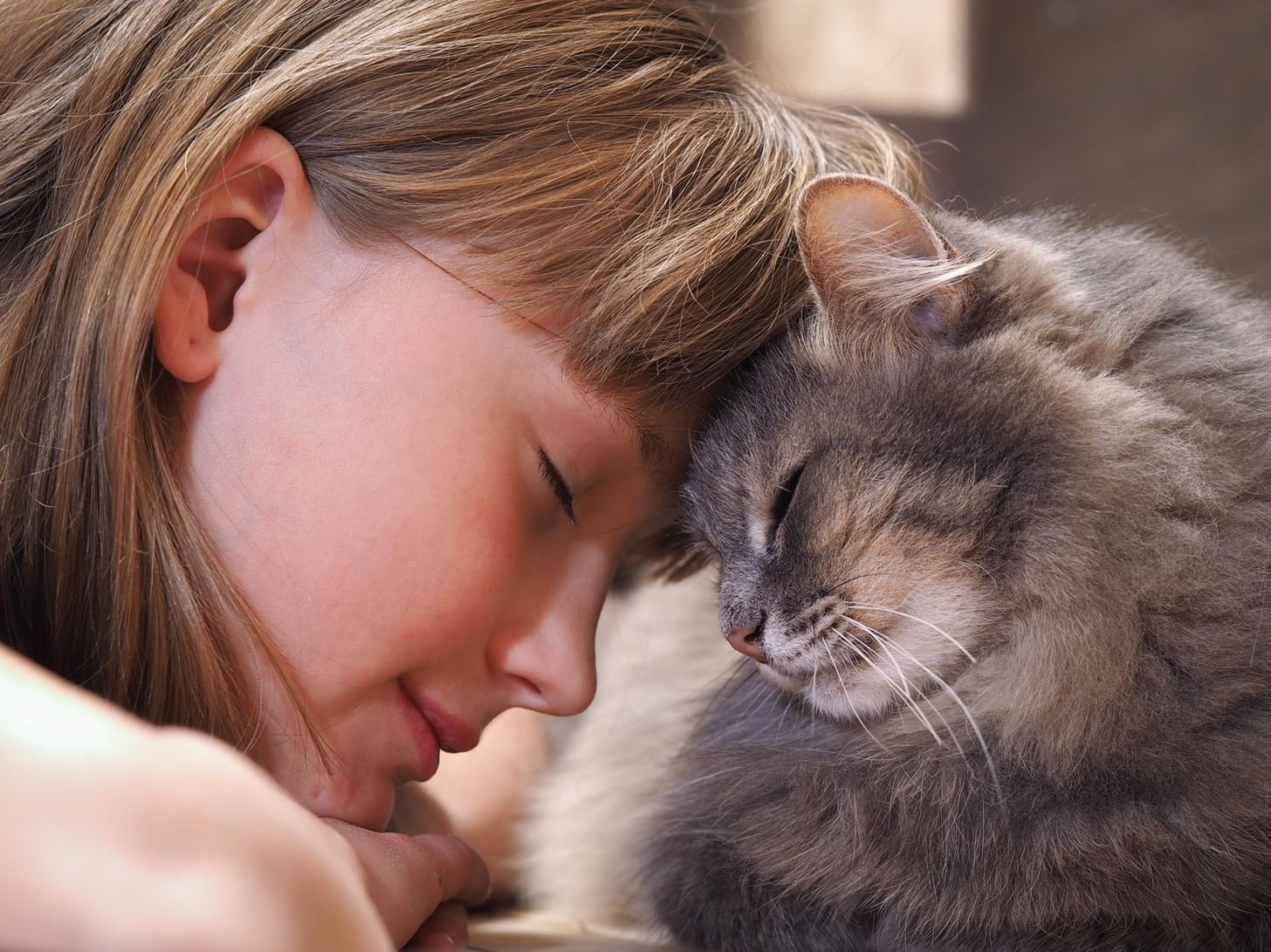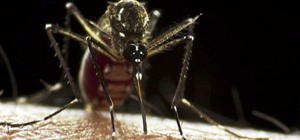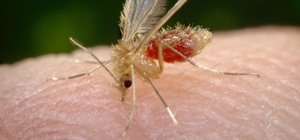Even if your cat drives you a little nuts, don't worry, because a new study says that cats pose no risk to your mental health.
Media reports in the last couple of years placed emphasis on the danger of your cat to your future mental health, and that of your children. No kidding. The connection comes from the presence of a parasite called Toxoplasma gondii, which causes toxoplasmosis. Although T. gondii can live within the meat of warm-blooded animals, cats are able to transmit the parasite in the form of oocysts in their feces. (An oocyst is a tough-walled early life stage of parasites.)
Cats can become infected by eating infected birds or rodents, or anything contaminated with feces from another infected cat. The parasite can be shed in the cat's feces for up to two weeks and is the source of human infections.
T. gondii has also (jokingly) been called "crazy cat lady syndrome" since it has shown to make infected mammals, like rats, less cautious of predators like cats (which then eat them). There isn't much hard proof that this kind of behavior manipulation is happening in humans, though.
Some research suggests that T. gondii poses a risk factor for people disposed to schizophrenia. But a cause and effect association between cats, kids, and mental health was outlined in a 2015 study that suggests ownership of a cat in childhood is more common in families in which the child later experienced psychosis.
According to the Centers for Disease Control and Prevention (CDC), about 22% of Americans age 12 and older are infected with T. gondii, through ways that include:
- Handling contaminated cat feces.
- Eating contaminated food, including undercooked, or uncooked meat and unwashed vegetables.
- Drinking contaminated water, or handling contaminated soil.
- Passage from mom to unborn child.
- In rare instances, through organ transplants or transfusions.
A study recently published in Psychological Medicine analyzed data from the Avon Longitudinal Study of Parents and Children to find a connection between cats and illness. In their study, researchers from University College London (UCL) had access to data from more than 14,000 children born between April 1991 and April 1992, and their families.

What's great about the Avon Longitudinal study is that it's a large data set of information gathered over decades at set intervals, not based on anyone's decades-old memories. Researchers had access to information that followed children from birth until 18 years of age, on variables like pet ownership of birds, rabbits, dogs, and cats, as well as occupation of parents and living conditions throughout childhood, among other criteria.
Using statistical analysis, study authors looked specifically at cat ownership during pregnancy and early childhood to test the theory of a developmental link between cat ownership and later childhood experience of psychotic symptoms. Research findings include:
- No evidence was found that owning a cat during pregnancy, or during the early years of childhood, predisposes a child in early or late adolescence to psychotic experiences.
- Noting their findings are not consistent with earlier studies, the authors suggest study methods like smaller studies, retrospective findings, and confounding elements may account for discrepancies in those studies.
- Children with a larger number of suspected psychotic experiences or symptoms lived in apartments, or crowded home environments, and moved more frequently than counterparts. Mothers of these children tended to be single, had fewer years of schooling, and were generally younger.
In a press release, lead author Francesca Solmi, a post-doctoral research associate in psychiatric epidemiology at UCL, notes:
The message for cat owners is clear: there is no evidence that cats pose a risk to children's mental health. . . . Once we controlled for factors such as household over-crowding and socioeconomic status, the data showed that cats were not to blame. Previous studies reporting links between cat ownership and psychosis simply failed to adequately control for other possible explanations.
How to Avoid Infection with T. Gondii
These positive findings mean that your cat is not predisposing your child to later issues with mental health. That said, T. gondii infections do put pregnant women and their unborn children at risk. At any age, avoiding T. gondii is smart. Here's how:
- Litter boxes: Keep up with litter box maintenance—the cleaner it is, the less time oocysts in feces have to become infectious. If you are pregnant, get someone else to do it, or use gloves and a face mask so you don't inhale or ingest the oocysts.
- Soil and sandboxes: Keep your outdoor sandboxes covered to ensure neighborhood cats don't consider your backyard the neighborhood dumping ground. Wear gloves when you garden, and always advise friends and family to wash hands after being, or playing, outside. It's just good hygiene.
- Avoid raw meat: For you and your cats and dogs, avoid eating undercooked or raw meat. Pork, lamb, and beef are particular T. gondii favorites. Slipping Fido or Kittykins some raw meat isn't a treat—it could be contaminated before it is cooked.
- Avoid the unclean and unpasteurized: Wash all fruits and vegetables before eating. Avoid unpasteurized milk to avoid T. gondii and listeria.
- Keep your kitten indoors: Cats become infected with T. gondii when they eat contaminated mice, birds, and other rodents. If you keep your cat indoors, they are not exposed to the parasite, and they are not killing the neighborhood songbirds. If you have a strictly indoor cat, the only real way for them to be exposed to T. gondii is through raw meat scraps you might provide as food. T. gondii is not spread by petting your cat.
Cats, like dogs, can share germs, so avoid sharing dishes and kisses. But the next time your cat does something that makes you bonkers? Don't worry, it won't last.
Just updated your iPhone? You'll find new emoji, enhanced security, podcast transcripts, Apple Cash virtual numbers, and other useful features. There are even new additions hidden within Safari. Find out what's new and changed on your iPhone with the iOS 17.4 update.


























Be the First to Comment
Share Your Thoughts